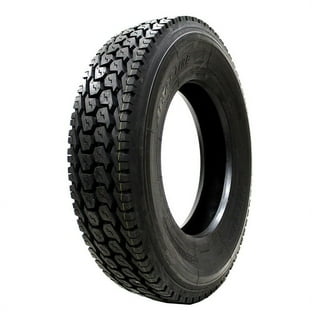Tire Solution: Comprehending Tire Stress Surveillance Systems
Comprehending Tire Stress Surveillance Solutions (TPMS) is a crucial facet of maintaining ideal lorry performance and security on the roadway. With advancements in automotive innovation, TPMS has become a standard attribute in modern vehicles, supplying real-time info on tire stress levels.

Importance of TPMS
The significance of Tire Pressure Surveillance Solutions (TPMS) lies in their capacity to improve automobile security and performance via real-time tracking of tire stress levels. Preserving the appropriate tire stress is essential for making certain optimal handling, stopping, and general safety of an automobile. TPMS offers drivers with immediate feedback on any underinflated or overinflated tires, permitting timely modifications to be made.
Components of TPMS
Sensing units are commonly situated in the tire shutoff stem or affixed to the wheel setting up, where they measure tire pressure and send data to the control module. Some progressed TPMS designs likewise present the actual tire pressure analyses for each tire, providing drivers with real-time details to ensure optimum tire efficiency and security. By keeping an eye on tire pressure continuously, TPMS helps protect against mishaps, minimizes tire wear, and enhances fuel efficiency, making it an important part for lorry safety and performance. mopar tire service specials.
Types of TPMS

On the various other hand, indirect TPMS depends on the lorry's wheel speed sensors to keep track of tire stress. This system detects underinflation by comparing the rotational rates of the wheels. Indirect TPMS is less costly than straight TPMS, as it uses existing sensing units within the lorry.
While straight TPMS offers more exact readings, indirect TPMS is easier in design and generally requires much less upkeep. Both systems have their restrictions and advantages, and the selection between them frequently relies on factors such as price, automobile make, and individual choice. Recognizing the distinctions in between these two sorts of TPMS can aid car owners make notified choices concerning tire maintenance and safety.
TPMS Upkeep Tips
Reliable upkeep of TPMS is important for guaranteeing optimum efficiency and safety of your car. Routinely inspecting the TPMS sensing units for any damage or rust is vital. Make sure that the sensing units are totally free and clean from debris that could conflict with their performance. In addition, it is a good idea to check the sensor batteries occasionally and replace them as needed to ensure accurate analyses. Conduct regular examine the tire pressure degrees and contrast them with the best site TPMS analyses to guarantee they correspond. If there are any inconsistencies, alter the system adhering to the manufacturer's standards. In addition, during tire rotation or substitute, see to it that the TPMS parts are dealt with very carefully to avoid any kind of potential damage. Last but not least, if the TPMS cautioning light brightens on the control panel, deal with the problem promptly by examining the tire stress and the overall system for any kind of faults. By adhering to these upkeep ideas, you can lengthen the life-span of your TPMS and boost the safety of your driving experience.
Advantages of Appropriate Tire Pressure
Preserving appropriate tire stress, as highlighted in TPMS Maintenance Tips, is important for gaining the various benefits associated with ideal tire stress degrees. Among the key advantages of preserving the right tire pressure is improved fuel performance. When tires are properly inflated, there is much less rolling resistance, causing much better gas economic situation. In addition, proper tire pressure ensures even tire wear, prolonging the life-span of the tires and advertising safer driving conditions. With the right tire stress, automobiles also have better handling and traction, particularly in unfavorable climate condition. This can enhance overall driving performance and security for the motorist and passengers. Preserving ideal tire stress can add to a smoother and a lot more comfortable trip by minimizing resonances and noise triggered by underinflated tires. To conclude, the advantages of correct tire stress surpass just tire longevity; they incorporate improved fuel performance, enhanced safety and security, much better lorry performance, and general driving convenience.
Verdict
In verdict, understanding tire stress surveillance systems (TPMS) is crucial for keeping optimal tire stress and making certain car security. By recognizing the value of TPMS, being acquainted with its components, understanding the various types available, click now sticking to proper upkeep pointers, and recognizing the benefits of keeping proper tire pressure, drivers can improve their driving experience and extend the lifespan of their tires. Correct tire pressure is crucial to risk-free and efficient vehicle operation.
